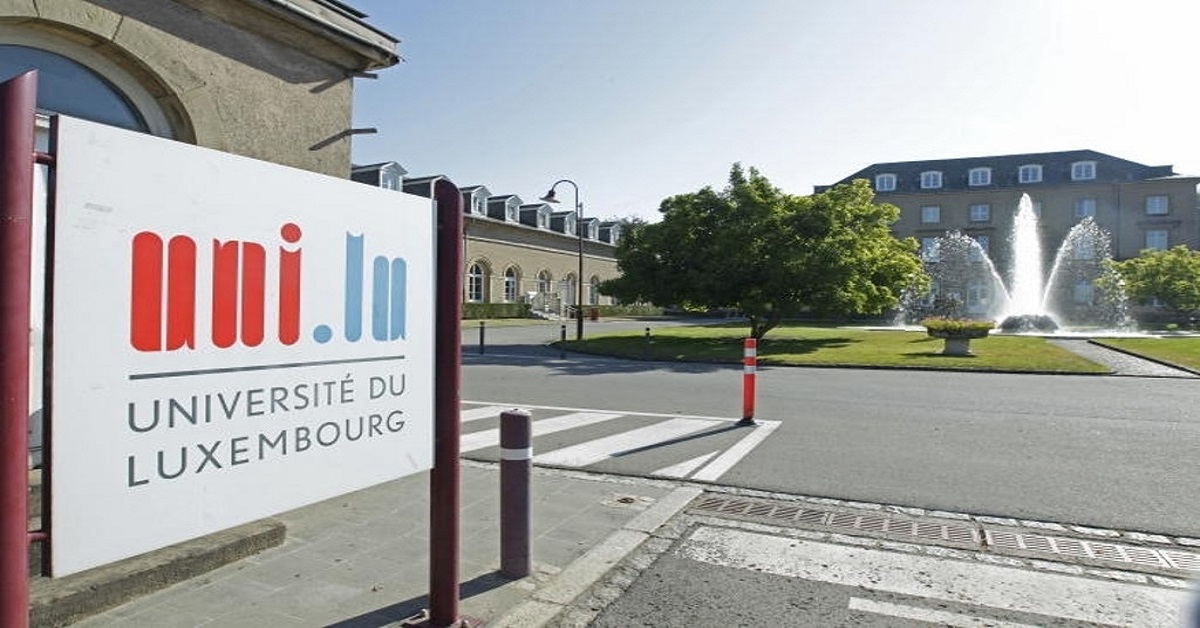
SnT is a leading international research and innovation centre in secure, reliable and trustworthy ICT systems and services. We play an instrumental role in Luxembourg by fueling innovation through research partnerships with industry, boosting R&D investments leading to economic growth, and attracting highly qualified talent.
Successful candidates will join the young, vibrant, and interdisciplinary FINATRAX Research Group, which builds bridges between business research and information systems engineering. Our work is organised around four ‘decentralisation technologies’: Blockchain (DLT), Digital Identities, Federated Learning, and the Internet-of-Things. The group consists of doctoral and post-doctoral researchers from diverse backgrounds (e.g., business, technology, and policy), united in pursuit of sustainable technologies that positively impact society. For more information, please visit our website: https://wwwen.uni.lu/snt/research/finatrax/projects
We offer two different career paths for research associates: academic or industry. In our academic track, research associates focus on publications, research grants, teaching experience, and community involvement, while maintaining a close relationship with industry and government to secure access to rich research data. In our industry track, research associates prepare for a career in industry, in a start-up, or public body while utilising their previous theoretical knowledge. They will build relationships with our private and public partners, while having the freedom to pursue their own ideas in an innovative and dynamic environment.
We’re looking for people driven by excellence, excited about innovation, and looking to make a difference. If this sounds like you, you’ve come to the right place!
Your Role…
The candidate will contribute to practice-led FinTech and digital assets research, such as the PABLO art-tokenisation project (funded by the Luxembourg Research Fund) and the Open Metaverse (SnT’s partnership with Infinite Reality). The candidate’s research on global phenomena like blockchain tokens, the metaverse, and Web3 wallets should focus on sub-topics that are relevant to Europe, such as:
- Paradigmatic differences between Anglo-American and European design, innovation, invention, and entrepreneurship research
- European alternatives to Meta’s proprietary metaverse and Visa’s Web3 Content Creator Program
- The requirements of Europe’s Sixth Anti-Money Laundering Directive for custodians of crypto-assets
- Conflicts between Europe’s Markets in Crypto-Assets Regulation (MiCA) and Decentralised Finance (DeFi)
- European Digital Identity Wallets (eIDAS 2.0 Regulation) for the payments use-case
- Digital “wallet wars” for payments – competition among proprietary wallets, open wallets with legal identities (e.g. European Digital Identity), and open wallets without legal identities (e.g. MetaMask)
- Europe’s General Data Protection Regulation (GDPR) and Digital Markets Act (DMA), and techno-political debates about privacy, surveillance, and personal data aggregation
Tasks:
- Carry out research in the pre-defined areas
- Disseminate results through scientific publications, especially Information Systems outlets
- Communicate and work with stakeholders in government (ministries, regulators, government-run start-up incubators) and companies in the financial services sector
- Prepare research proposals to attract industry partnerships as well as national and European grant projects
- Manage research projects and prepare project deliverables
- Provide guidance to Master students and PhD students that submit work to Information Systems outlets
The candidate should demonstrate interest in the following publication outlets:
- High-ranked journals such as the Association for Information Systems Senior Scholars’ Basket of Eight and Technology in Society
- Blockchain and fintech tracks at Information Systems conferences like ECIS, HICSS, and ICIS, as well as the Annual Meeting of the Academy of Management
Your Profile…
FINATRAX is an interdisciplinary research group, therefore we welcome applicants from the social sciences and the innovation sciences. We will consider applicants that employ conventional qualitative or quantitative methods, mixed methods, or computational methods. Applicants must be able to explain why their preferred methods are valuable for theory development: this is crucial.
Applicants should possess a doctorate in Information Systems, Management, Market Studies, Organisational Studies, Political Science (e.g. fintech regulations), Science and Technology Studies, Sociology, or the Creative Industries.
All applicants must be willing to co-author texts for Information Systems outlets. Applicants must also be willing to collaborate with software engineers, to develop theoretical contributions based on engineers’ models, prototypes, and other pre-theoretical artefacts.
We are looking for applicants that possess these general qualities:
- A collaborative team player with a desire to make a personal impact within our interdisciplinary research group
- The commitment to participate in the design, implementation, and theoretical elaboration of high-quality solutions that solve significant problems
- Self-initiative, creativity, curiosity, flexibility and enthusiasm to work
- Experience in publishing high-quality and high-impact research, as demonstrated by research under review or published in 1st quartile journals (according to Scopus)
Knowledge and Experience
The position requires English-language proficiency for both written and verbal communication.
Applicants should have some knowledge or experience in at least one of the following areas. Competence within all or most of these areas is not required:
- Participatory, practice-led, or project-based research (e.g. Action Research, Design Science, Design and Innovation Theory, or Engaged Research)
- Theoretical contributions derived from industry partnerships or public partnerships
- Empirically based theory development (e.g. actor-network theory, case studies, and interviews)
- Blockchain, digital markets, or fintech research that encounters business, ethical, or legal challenges
- Basic concepts related to cryptography (e.g. public-private key pairs) and privacy-enhancing technologies (e.g. zero-knowledge proofs and differential privacy)
Here’s what awaits you at SnT…
- Exciting infrastructures and unique labs. At SnT’s two campuses, our researchers can take a walk on the moon at the LunaLab, build a nanosatellite, or help make autonomous vehicles even better
- The right place for IMPACT. SnT researchers engage in demand-driven projects. Through our Partnership Programme, we work on projects with more than 55 industry partners
- Be part of a multicultural family. At SnT we have more than 60 nationalities. Throughout the year, we organise team-building events, networking activities and more
In Short…
- Contract Type: Fixed Term Contract 24 Month (extension possible)
- Work Hours: 40.0 Hours per Week
- Location: Kirchberg
- Job Reference: UOL05348
The yearly gross salary for every Postdoctoral Researcher at the UL is EUR 77167 (full time)
How to apply…
Applications, written in English should be submitted through the University’s job portal and should include:
- A cover letter including:
- A research statement and a list of topics of particular interest to the candidate (250 words)
- A statement on the candidate’s personal motivation for applying (250 words)
- A strategy for the acquisition of research grants and industry partnerships (250 words)
- Full CV, including the contact address, work experience, and a list of publications
- At least one publication in full-text, authored by the candidate
- (If available) Reference letters by prior employers
Early application is highly encouraged, as the applications will be processed upon reception. Please apply ONLINE formally through the HR system. Applications by Email will not be considered.
The University of Luxembourg embraces inclusion and diversity as key values. We are fully committed to removing any discriminatory barrier related to gender, and not only, in recruitment and career progression of our staff.
About the University of Luxembourg…
University of Luxembourg is an international research university with a distinctly multilingual and interdisciplinary character. The University was founded in 2003 and counts more than 6,700 students and more than 2,000 employees from around the world. The University’s faculties and interdisciplinary centres focus on research in the areas of Computer Science and ICT Security, Materials Science, European and International Law, Finance and Financial Innovation, Education, Contemporary and Digital History. In addition, the University focuses on cross-disciplinary research in the areas of Data Modelling and Simulation as well as Health and System Biomedicine. Times Higher Education ranks the University of Luxembourg #3 worldwide for its “international outlook,” #20 in the Young University Ranking 2021 and among the top 250 universities worldwide.
Further information
For further information, please contact Reilly Smethurst and Gilbert Fridgen (email address: {first name}.{last name}@uni.lu). Please use the job title and reference number mentioned above in the subject line of your email.





